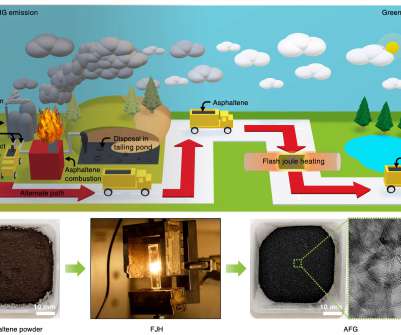DOE issues FOA for up to $4M for development of advanced H2 storage systems and materials
Green Car Congress
OCTOBER 31, 2013
The goal is to enable the widespread commercialization of hydrogen and fuel cell technologies and specifically to provide adequate hydrogen storage for onboard vehicle applications that meet the DOE hydrogen storage targets, as well as enabling early market applications such as materials handling equipment and portable power applications.

























Let's personalize your content